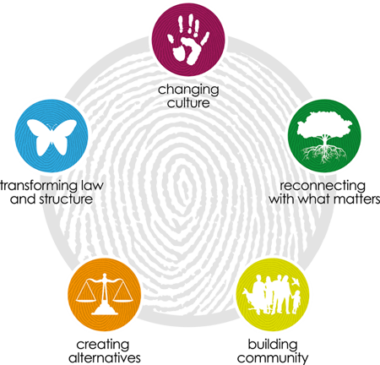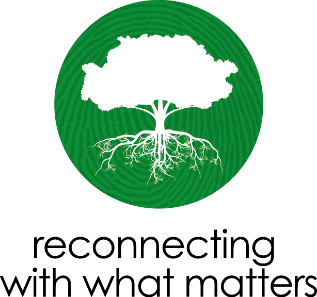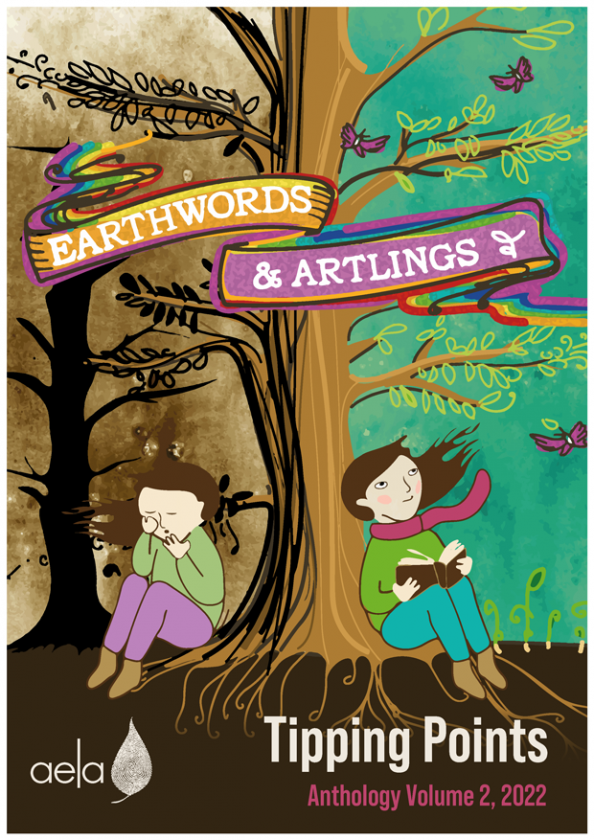About AELA
 The Australian Earth Laws Alliance (AELA) is a national not-for-profit organisation whose mission is to increase the understanding and practical implementation of Earth centred governance in Australia, with a focus on law, economics, education, ethics and the arts. AELA’s work is inspired by the theory and practice of Earth jurisprudence, which is a governance philosophy and growing social movement. Earth jurisprudence proposes that we rethink our legal, political, economic and governance systems so that they support, rather than undermine, the integrity and health of the Earth.
The Australian Earth Laws Alliance (AELA) is a national not-for-profit organisation whose mission is to increase the understanding and practical implementation of Earth centred governance in Australia, with a focus on law, economics, education, ethics and the arts. AELA’s work is inspired by the theory and practice of Earth jurisprudence, which is a governance philosophy and growing social movement. Earth jurisprudence proposes that we rethink our legal, political, economic and governance systems so that they support, rather than undermine, the integrity and health of the Earth.
The need for new governance systems has never been greater: as we face a climate changed world and transition away from our destructive reliance of fossil fuels, human societies need to create new ways of working together and nurturing the wider Earth community.
AELA works to build long term systemic change, so that human societies can shift from human-centred to Earth-centred governance. Our vision is to create human societies that live within their ecological limits, respect the rights of nature and enjoy productive, sustainable economies that nurture the health of the wider Earth community.
AELA carries out its work by supporting multi-disciplinary teams of professionals engaged in research, education, publications, community capacity building and creating new models of Earth friendly governance. Our team includes Indigenous community leaders, lawyers, economists, scientists, deep ecologists, artists and community development practitioners.
AELA is a founding member of the Global Alliance for the Rights of Nature, which brings together more than 80 organisations around the world, who support Earth Jurisprudence and Rights of Nature. AELA participates in the UN Harmony for Nature initiative, is an affiliate of the Earth Charter and a partner of the Global Footprint Network.
AELA is run by volunteers who are committed to the philosophy and practical implementation of Earth Jurisprudence.
AELA is a not-for-profit company limited by guarantee (ABN: 54 156 139 221)
How we work
AELA’s theory of change is embedded in the emerging theoretical and practical approach to governance called ‘Earth jurisprudence’. Earth jurisprudence advocates for Earth centred law, governance and ethics – it proposes that we rethink our legal, political, economic and governance systems so they support, rather than undermine the integrity and health of the Earth.
Our vision is to help industrialised societies shift from a human centred to an Earth centred world view, so that we can live within our ecological limits, respect the rights of nature and nurture the health of the wider Earth community. We are ‘idealistic realists’: we know that shifting our industrialised societies from their current destructive relationship with the natural world, toward a healthier future, will take hard work – but we believe a more compassionate, just and earth centred human society is possible.
Our work is multi-disciplinary and brings people together from different cultures, professional backgrounds and bio-regions of Australia. Our work combines academic research, community based projects and advocacy and is connected by five core themes: changing culture, reconnecting with what matters, building community, building alternatives and transforming law and governance.
Core Themes of Our Work
Please scroll down, for more information about our core themes of work.

 |
Theme 1 – Cultural ChangeAELA believes it is critical to shift cultural beliefs in Western industrialised societies away from human centredness and return to an Earth centred world view. We work to achieve cultural change, through education, the arts and cross-cultural learning, which will in turn drive and support the systemic changes we need to make to our legal, economic and political systems to nurture the Earth community. |
 |
Theme 2 – Reconnecting with what mattersAELA is committed to enriching the transformation of law and governance by ensuring that it is informed and deeply connected to ‘the stuff that matters’. For us, this includes: traditional and contemporary indigenous knowledge, a greater understanding of and respect for the natural sciences and a greater acknowledgement of the role that the human spirit plays in driving ecological awareness and change. AELA is committed to ensuring that law, governance and ethics reconnects with the human heart and spirit. We believe that as individuals, our love of the Earth community is a key driver for all personal and professional action, and can be nurtured to create more Earth-centred governance systems. |
 |
Theme 3 – Building CommunityAELA’s work focusses on supporting the role of civil society in creating the long lasting changes that we need to make, in order to live in greater harmony with the non-human world and forge truly sustainable human societies. We believe in the phenomenal energy, expertise and commitment of environmentally focussed individuals and community based organisations, and our strategies reflect this focus on civil society (ie non-government and non-corporate sectors of Australian society). |
 |
Theme 4 – Building AlternativesAELA’s work includes a strong emphasis on creating a positive vision for Earth centred human governance. To do this, we’re engaged in a range of practical projects that demonstrate how our current legal, economic and political systems can be, and should be, if we’re to nurture the Earth community rather than destroy it. Our core projects include: GreenPrints, the New Economy Network Australia, Peoples Tribunal for the Rights of Nature Australia and the Wild Law Judgments Project. |
 |
Theme 5 – Transforming law and governanceThe ultimate goal of all our work is to transform Australian culture, law, ethics and governance – at all scales – to be Earth centred. We see our other four programs as contributing to the direct transformation of law and governance, and we will draw on the work in our other programs to develop our law reform and advocacy work. |
